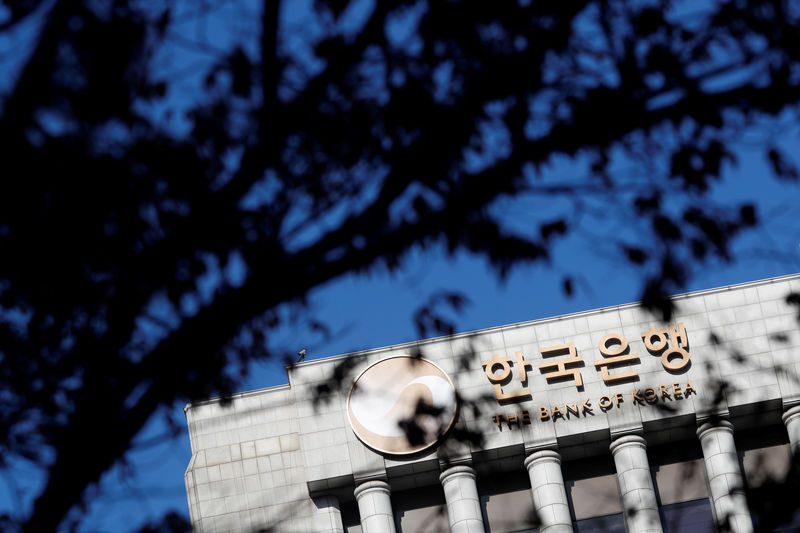By Choonsik Yoo and Joori Roh
SEOUL (Reuters) - South Korea's central bank left interest rates steady on Friday even as it trimmed growth and inflation projections, underlining a cautious view on the economy in the face of global risks and cementing market bets for more policy easing next year.
The Bank of Korea's policy board held the base rate steady at 1.25% having cut it twice in recent months, matching a unanimous prediction in a Reuters poll, but one of the seven board members voted for reduction.
The most liquid 3-year treasury bond futures extended gains after Governor Lee Ju-yeol's news conference, while local stock prices and currency showed a muted reaction.
"The (local) economy will continue to show a trend similar to the current pace until the middle of next year and then will likely begin improving," Lee told a news conference.
The central bank downgraded this year's economic growth forecast to 2.0% from the previous 2.2% and next year's to 2.3% from 2.5%. Inflation projection was also revised down to 0.4% for this year from the previous 0.7%.
"The governor said the momentum would be far from strong even when the economy begins recovering and that the recovery would start only from the middle of the next year," said Cho Yong-gu, economist at Shinyoung Securities.
Cho said these cautious views underscored the high chances of a further rate cut in 2020, adding he was changing his forecast to a further cut in the rate next year from no change.
While predicting the rate would be left unchanged on Friday, 11 out of the 14 economists in the Reuters survey saw a cut in the rate next year to 1.0% or lower, which would be the lowest since it adopted the current policy system in 1999.
Heavily dependent on exports of computer chips, smartphones, cars and ships, Asia's fourth-largest economy is headed for the worst growth in a decade even after two rate cuts and a big increase in government budget spending.
The central bank cut the policy rate in July and October by 25 basis points each time, but the bank had been given little chance of making another cut so soon as two of the seven policy board members had voted to keep it unchanged in October.
Earlier this month, the country's most influential government think-tank called on the BOK to cut interest rates further while slashing its economic growth forecasts for this and next year to 2.0% and 2.3%, respectively.
Despite some signs of manufacturing activity beginning to stabilize and optimism that the U.S.-China trade war would soon end, analysts said South Korea's economy would still require further policy support to build a solid recovery.
"We think that BOK’s easing cycle has further to run," Alex Holmes, Asia economist at Capital Economics, said in a note.

"We expect the global economy to struggle for momentum over the coming quarters and that export demand will stay subdued."